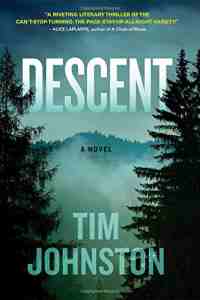The God's Eye View by Barry Eisler
 Wednesday, February 17, 2016 at 9:56AM
Wednesday, February 17, 2016 at 9:56AM 
Published by Thomas & Mercer on February 2, 2016
In the wake of the Snowden revelations, The God’s Eye View serves up a timely story about an NSA director with a god complex who uses a vast and secret network of surveillance technology to spy on anyone he deems a security threat -- including Americans and particularly reporters and bloggers who pose a threat to his own job security. The NSA surveillance systems are so compartmentalized that, as was his intent, only the director understands the big picture. He looks forward to the day when parents can be manipulated into implanting microchips in their children as an anti-kidnapping device, enabling the NSA to track everyone who receives the chip. And like all government officials who want to spy on Americans, he justifies his actions with the belief that the only people who want privacy are those who are up to no good.
The title refers to an NSA intelligence gathering program that is even more extensive (and illegal) than Snowden’s revelations. When a leak of information concerning that program leads to an extreme response, an NSA analyst becomes concerned that the agency is taking it upon itself to dispose of inconvenient Americans.
Barry Eisler has fun describing how unelected government officials make decisions that are not theirs to make, then sell the public on those decisions by manipulating the media. He understands how easy it is for government officials to seduce the media and how buzz words like “national security” can be used to conceal nefarious intentions.
A couple of strong characters are the key to the novel’s success. Eisler creates a ruthless killer who happens to be deaf, gives him a detailed background, and humanizes him in a way that makes him sympathetic (if you ignore the fact that he’s a ruthless killer). Of course, Eisler honed the craft of humanizing assassins in his John Rain novels, and he puts that talent to good use here. The NSA director and his second assassin are so vile as to be cartoonish, but the female analyst and her deaf son are, if not deep, at least recognizable as real people. The conflicts that the analyst and the deaf killer both feel between loyalty to an employer and loyalty to the truth give the novel its heart.
The story follows an unsurprising course leading to a resolution that is largely predictable. Still, the story would probably have been disappointing if it had not resolved as expected. There are times when Eisler’s prose feels a bit rushed, but most of the time his writing style is fine.
Eisler appends a number of sources for those who want more information about the government's abuses of surveillance as well as its abuses of people who make internal complaints about illegal surveillance. It’s a little late in the day for a book like this to be lauded as a cautionary tale, but it is always good to read novels that stand as a counterpoint to simplistic novels that view privacy as a quaint notion that just gets in the way of slaughtering terrorists.
RECOMMENDED



